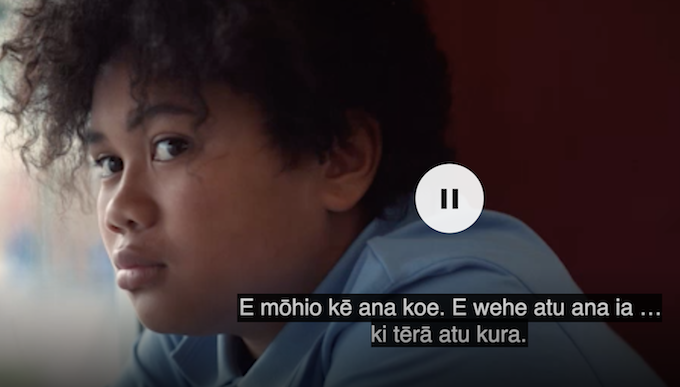Please become a teacher; gov’t launches new ad campaign

A new TV campaign to grow the number of teachers and te reo Māori teachers has been launched, sharing real stories about what motivates educators.
“We want to encourage people to choose teaching as a career – and to feel that decision is supported by family and friends. We also want to attract trained teachers back into the profession,” said Ministry of Education Associate Deputy Secretary Pauline Cleaver.
The campaign stories showcase the everyday experiences with students that impart life skills such as kindness, self-confidence, and resilience, alongside academic learning – elements of teaching that are often unseen and go unrecognised.
“Research we’ve undertaken on what motivates people to teach shows that teachers find helping young people to back themselves, connecting them with their culture and inspiring and guiding them toward a better future, is rewarding and challenging. Amongst those surveyed 97% were proud to be a teacher.
“Most people can recall a teacher who was a positive influence on their life and the teachers involved in the research all recounted instances where their teaching had a profound impact on a student’s life and learning. We’re highlighting the impact of these elements of teaching in this campaign,” says Ms Cleaver.
“We know good teachers make a huge difference to a child’s life and learning. The survey found 95% of people agree that teaching is New Zealand’s most important career when it comes to developing further generations.”
At the same time as this domestic campaign starts, the government is also stepping up its international recruitment to bring New Zealand trained teachers home and encourage overseas trained teachers to move here.
“We’ve enlisted a third recruitment agency, Randstad International, to work with schools to help them find teachers between now and January. We’ll be urging principals to lodge vacancies as early as possible,” says Ms Cleaver.
These marketing initiatives are funded from the teacher supply package introduced by the government for teacher recruitment in late 2017 and continued in Budget 2018.
The Ministry has a number of other initiatives underway to increase the number of teachers of te reo Māori, and other areas where there is a shortage. These include:
– Funding for more than 1000 Teacher Education Refresh places to remove cost barriers so that teachers can return to teaching faster.
– The Auckland Beginning Teachers Project expanded to 60 places in 2018.
– The number of beginning teachers training through Teach First NZ has increased to 80 in 2018.
– The Voluntary Bonding Scheme has been expanded to encourage beginning teachers to work in decile 2 and 3 Auckland schools, and nationwide in identified subjects and Māori Medium Kura. 300 teachers who started their role in 2018 were eligible for the expanded scheme.
– Up to 200 Overseas Relocation Grants made available to support New Zealand teachers to return home, and encourage overseas teachers here.
In what is a fitting tribute to Te Wiki o te Reo Māori | Māori Language Week, the te reo Māori advertisement is one of the first to be aired on mainstream TV entirely in te reo Māori, without subtitles.
Ministry of Education Associate Deputy Secretary Pauline Cleaver says the Ministry has taken this approach to underline the importance of our Māori language.
“We really need great teachers to help reach the Government’s goal of ensuring our education workforce can use te reo Māori correctly everyday,” she says.
“We now have almost 200,000 students throughout the country learning te reo Māori, with schools increasing access to the subject, and some colleges making it compulsory in the first year. We need more great te reo teachers to meet this demand,” she says.
The te reo Māori commercial follows a class of students whose favourite teacher is moving to another kura. To show their appreciation and respect, they arrange a surprise and take the school bus to the new kura on her first day. As she is being welcomed, the surprise is revealed when her father calls on her old students – who perform the haka and appeal to her new kura to look after their taonga (treasure).
Let us know what you think of the full video: https://haereheikaiako.co.nz/video/taonga










Why why why did the teacher get the class to turn their backs on the student struggling with his confidence.
Totally the wrong message.
Very disappointing.